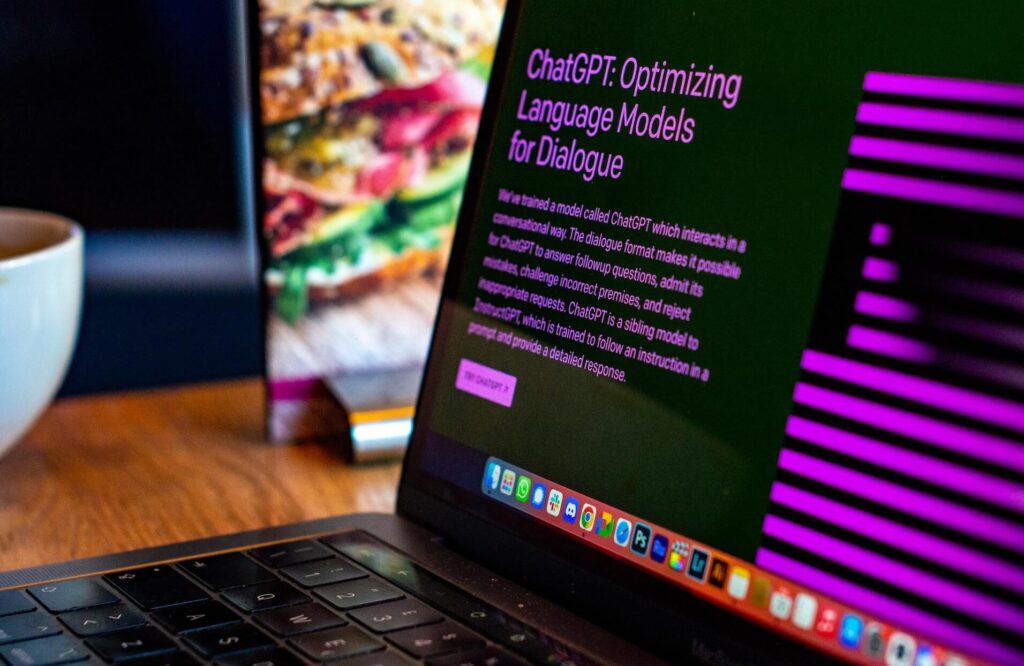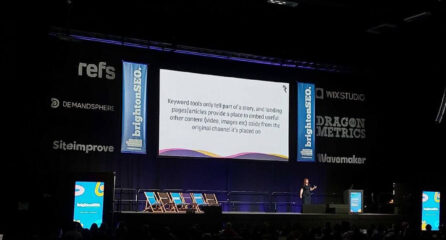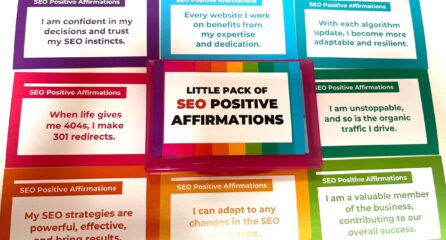Google makes thousands of changes to its algorithm every year. Here at Loom, we stay on top of these and regularly discuss changes in the search space. But while most of these updates aren’t noticed by users or website owners, some revolutionise the way search results are assessed and displayed. One thing stays the same, writing for people and not search engines is always the best approach.
In this article, we’ll look at the Helpful Content Update and why, in 2024, it’s still a hot topic. By reinforcing the importance of the human touch and writing valuable content for people, you can build a successful content strategy that your audience will resonate with.
Google’s helpful content update
Google’s helpful content update from September 2023 was another step towards aligning searcher intent with the best possible results. But why was the update needed, and why now? Google explained the purpose of the update as: ‘Google Search’s helpful content system generates a signal used by our automated ranking systems to better ensure people see original, helpful content created for people in search results.’
The update was launched in August 2022, with the latest part released in September 2023.
It was a global update affecting all languages, and its primary purpose was to target poor-quality content that had been created only to rank well in search engines rather than provide value to the people reading it. The update affected websites with a high proportion of thin or over-optimised content made purely for ranking, which means that results that are genuinely useful will rank more highly.
Why did Google launch their helpful content update?
The helpful content update ensures that search results are more relevant to users. According to estimates, 328.77 million terabytes of data are created each day. To separate what’s truly of value to those using the search engine from poor-quality content, Google needs to be selective in what it displays in the search engine results pages (SERPs). The update helps Google return relevant results that answer queries and contain the depth of information needed by users.
The September 2023 helpful content update
Google made some important changes to the update in the final stage of their September 2023 rollout. We take a look at the key points below.
Subdomain use
Some websites generate income by hosting third-party content on their main website or a subdomain. The idea is that the ranking power of the main website will help content on the subdomain rank more highly. The Helpful Content Update guidance says:
“If you host third-party content on your main site or in your subdomains, understand that such content may be included in site-wide signals we generate, such as the helpfulness of content.
“For this reason, if that content is largely independent of the main site’s purpose or produced without close supervision or the involvement of the primary site, we recommend that it should be blocked from being indexed by Google.”
This means that these practices can negatively impact rankings, effectively stopping companies and brands from leapfrogging the rankings of another website.
AI-generated content
AI is a hot topic – especially when, traditionally, Google’s stance has been against using AI tools to write content. However, Google has changed its guidance during the course of the helpful content update being rolled out.
Initially, their guidance said that “Google Search’s helpful content system generates a signal used by our automated ranking systems to better ensure people see original, helpful content written by people, for people, in search results.” This was updated in September to “Google Search’s helpful content system generates a signal used by our automated ranking systems to better ensure people see original, helpful content created for people in search results.”
This subtle change removes the “written by people” section. This suggests that, as long as it’s providing original information that’s useful to people, Google won’t discriminate when it comes to the author of the content. However, AI generated content is unlikely to be able to compete with human-written content for many reasons, and is unable to comply with the helpful content update’s guidelines.
Google’s wider adoption of AI can be seen in its latest update to its search function, which uses generative AI. When searching, a snapshot of AI-generated information will appear with links to follow-up questions and a feature that allows you to ask Google more about the subject.
For more information about using AI for content writing, see our article.

Aligning your content to Google’s helpful content guidelines
If you notice that your content has been negatively affected by the helpful content update, don’t panic. As with any algorithm update, it’s important to allow things to settle before making drastic changes to your website.
But there are some things you can do to give your content the best chance of ranking well under the new guidelines. We’ll explore these in the following sections.
Self-assess your content
The first thing to do is take a look at the content that’s already on your website. You can perform a content audit to systematically assess the performance of your website and analyse each piece to see where improvements can be made. When looking through, ask yourself the following questions:
- Does it serve a purpose? What was the reason for its creation, and does it answer the question or solve the problem? Is it better than other content available, or can you add more depth?
- Is it up to date? Content that’s out of date won’t rank as well. Go through and refresh things where necessary. Can you provide a more up-to-date statistic from a relevant source, or is there any new information that can be included? Make sure to update the published date, too.
- Is it engaging? As well as providing the reader with information, you want your content to lead to an action. Does it adequately engage the reader and lead them to make an action?
- Does it demonstrate your experience and expertise? Users are searching to find answers to their problems. Be empathetic with your audience and include your experiences where you can – for example, if your content is about filling in a tax form, mention how confusing the jargon can be, or how time-consuming sections may be. This will help ensure your content aligns with Google’s EEAT. Read more about this here.
SEO can often feel like a game of cat and mouse, and you’re never truly done when you publish a page. Assessing your content in line with ranking fluctuations can help to understand what your content is missing. More than often your content hasn’t fallen in rankings due to a lack of quality, but a shift in a user’s intent. If your blog on social media only mentions Facebook and Myspace, it may be a time to update your content and ensure that it is still relevant.
Jack McGivern, SEO expert
Writing SEO-focused helpful content
Google provides a list of questions that you should use when creating content. As you’re planning and writing content, use the points below to ensure your content aligns with the update, serves your readers and ranks well. We look at some of the questions relating to the quality of the content further on in the article, but some other useful things to consider are:
- Is the heading or title unrepresentative of the content or overly dramatic, e.g. clickbait? It should be accurate, descriptive and helpful.
- Would you save or bookmark the page and share it with someone else with the same query?
- Does the content adhere to the level of quality you’d expect to see printed in a book or magazine?
- Are there issues with spelling or grammar?
- Has it been mass-produced or hastily written, so that it hasn’t received the attention that it deserves?
Provide a great user experience
Google rewards sites that provide a good user experience. Helpfully, they also provide advice on what this means. When reviewing your website, you should think about the following:
- Does the page display good Core Web Vitals?
- Are pages secure?
- Is content optimised for mobile devices?
- Are there a reasonable number of ads?
- Does the page avoid having pop ups?
- Can visitors navigate to or from the page easily
Write for users, not search engines
People-first content is designed to be useful for those reading it rather than to manipulate search engine rankings. For your content to be people-first, it should be written to serve an audience who have a real need. It should clearly demonstrate the expertise and knowledge that you can provide and others can’t. Ultimately, the person reading your page should feel as though their question has been answered and that they have learned something as a result. This is what Google will reward by displaying in search engine results and what you should focus on creating.
Below, we’ve included some questions to ask when assessing your content to help you ensure it’s written for users rather than search engines.
Are you writing about things you don’t have expertise in? Or on topics chosen just because you think they’ll trend?
It’s fine to create content for SEO purposes, but your aim should not be to purely feature in search engine results – you need to think about your audience, too. Do not try to create instructional content outside your areas of expertise without any depth of knowledge about the subject. In short, if you’re creating content on a topic that you’re an expert in, answers your audience’s questions and provides value, your rankings are sure to improve.
Creating thin content without any expertise that will provide no usable information to the reader will have a negative effect on your rankings.
Are you producing a range of content with no discernible theme to try and maximise visibility across search results?
Picking topics based on trending topics or search volume might be tempting to try and get your website seen by the greatest number of people, but you may be writing on topics outside of your area of expertise, and your site will become diluted with no clear purpose. This will have a negative impact on your rankings. You should try to stick to key areas and really hone in on what you know.
Are you using AI extensively to create content?
AI is not sophisticated enough to create content that can compete with an expert on the subject or a professional content writer. If you are using AI extensively when creating content, it won’t be able to compete with pages or blogs that have been written by an expert and consequently will not rank as highly.
As we mentioned above, Google appears to be more tolerant of AI-generated content. So, you may be able to supplement your original writing with AI to generate ideas to help beat writer’s block, but you should always try and have a human create the content itself.
Are you taking information from other blogs and rewording them without adding any value?
If you’re writing outside your area of expertise, or even within your area of expertise, it might be tempting to take a shortcut when creating content by lifting information from existing blogs or articles and just rewording them. This will make it harder for you to rank highly, as, at best, your content will be an imitation of what already exists. Always look to provide something new and of more value to readers than what already exists – this is where your own experiences can really help.
Does your content leave people needing to seek out further information?
If your website acts as a stepping stone for people on a journey to find information, it’s not serving its purpose. You want your content to provide all of the information and value needed by readers, and, generally content serves a purpose in leading your audience on a journey to a desired action. If people are left needing more information, they’ll leave your website and move to another. It’s also a signal that your content isn’t strong enough.
But again, only stick to what you know and don’t stray into less-relevant areas. For example, if your company sells lawn care products, you don’t want to start writing about hanging baskets unless it’s a service you’d like to offer one day. They can be mentioned as part of a wider piece on garden design, but you want to focus on your market.
Are you just changing the published date on your pages to make them seem current?
Search engines generally rank newer content over older, out-of-date content. It might be tempting to just alter the ‘Published’ date on published pages without updating any of the information to trick search engines into thinking it’s fresh, recently published content. You shouldn’t do this. Instead, update statistics, review the search landscape, add new information where relevant and make edits and changes based on gaps in the content.
If you’ve found yourself answering yes to the above questions, you may find that your website was negatively affected by this update, and a new content strategy following best practices moving forward will help you regain visibility.
The Helpful Content Update & E-E-A-T
Google’s experience, expertise, authoritativeness and trustworthiness (EEAT) update was designed to have a similar overall effect to the Helpful Content Update, essentially to make sure the most useful results appear at the top of the SERP.
Google assesses experience, expertise, authoritativeness and trustworthiness when reviewing content, but it has stated that, while content doesn’t have to demonstrate all of them, trust is the most important. EEAT is more important with ‘Your Money or Your Life’ pages that are likely to have an influence on the finances and health of the people reading them.
However, an update to the guidelines states that expert content can now be “written or reviewed by an expert.” This essentially means that having an expert check and verify content is now enough for it to signal expertise.
While there is definitely an overlap between Helpful Content and EEAT, it’s important to ensure you’re mindful of both when creating content.
Why should a reader trust what you have to say? Make sure to back up your points with links to other pages you have written, data from authorities in your industry, and even quotes offering your experience on the subject.
Jack McGivern, SEO expert
How Loom can help your website thrive
Loom understands how Google updates can affect businesses. Our SEO and Content teams can help you negotiate algorithm updates and ensure your website receives good visibility and ranks for the terms that your customers are searching for. Get in touch today to find out how we can work together.





